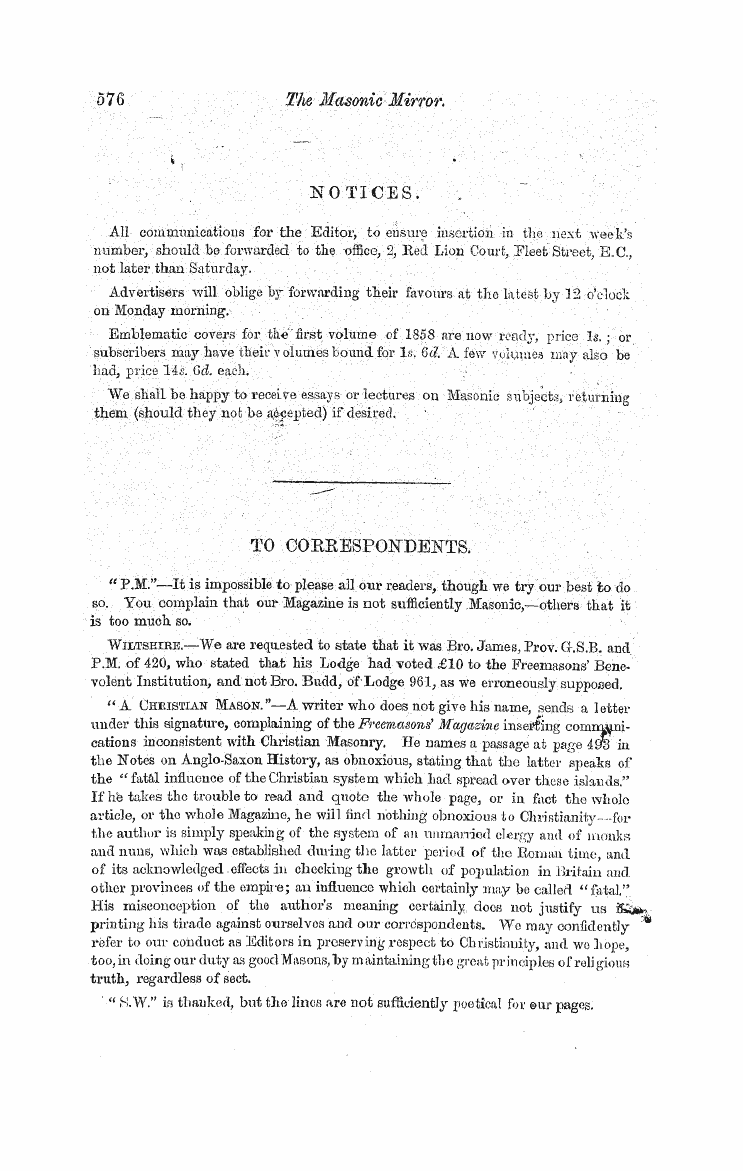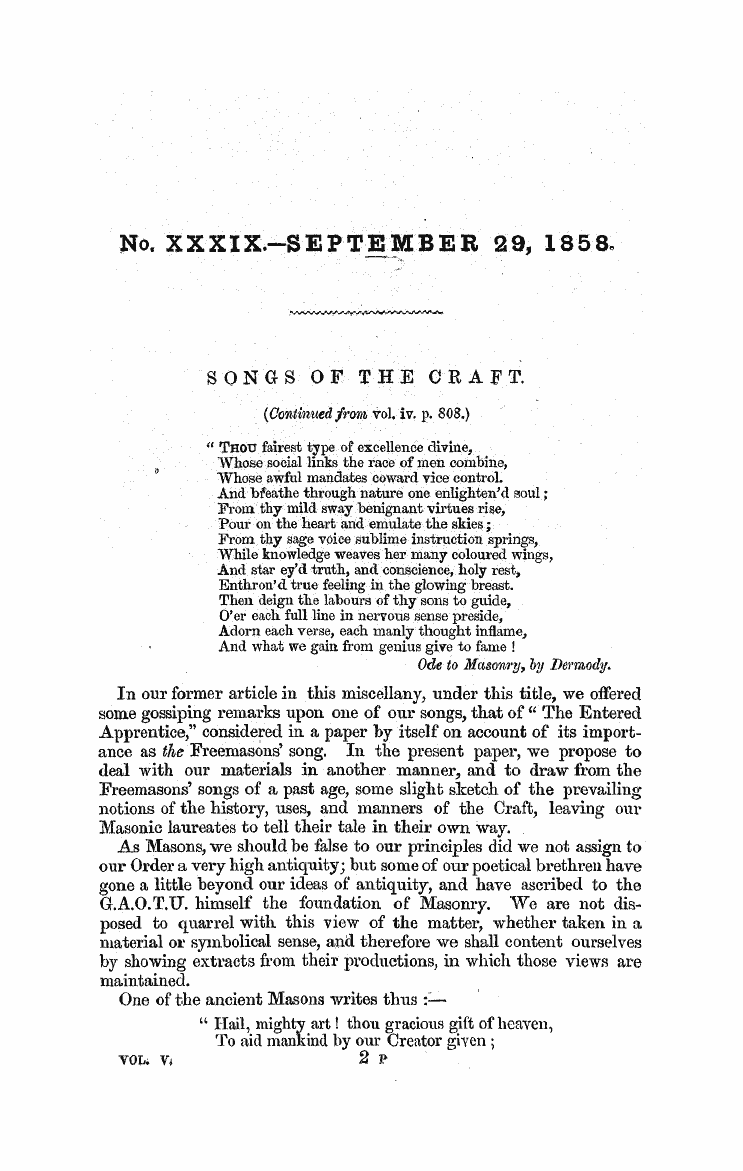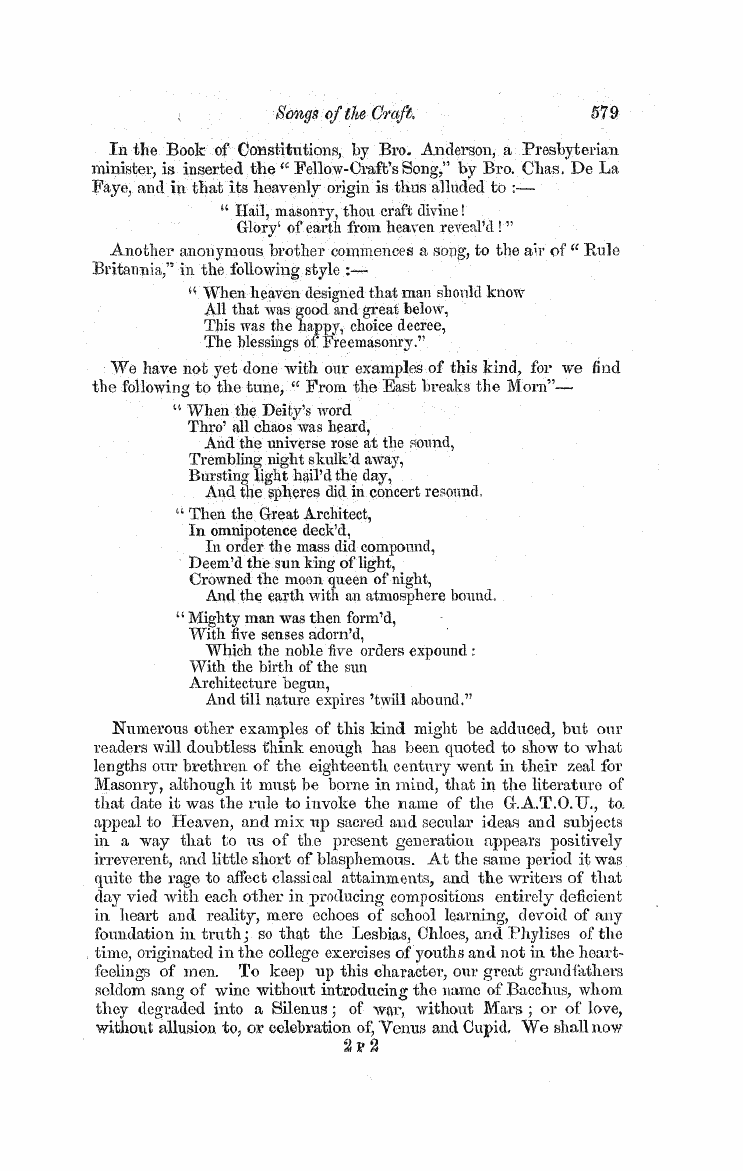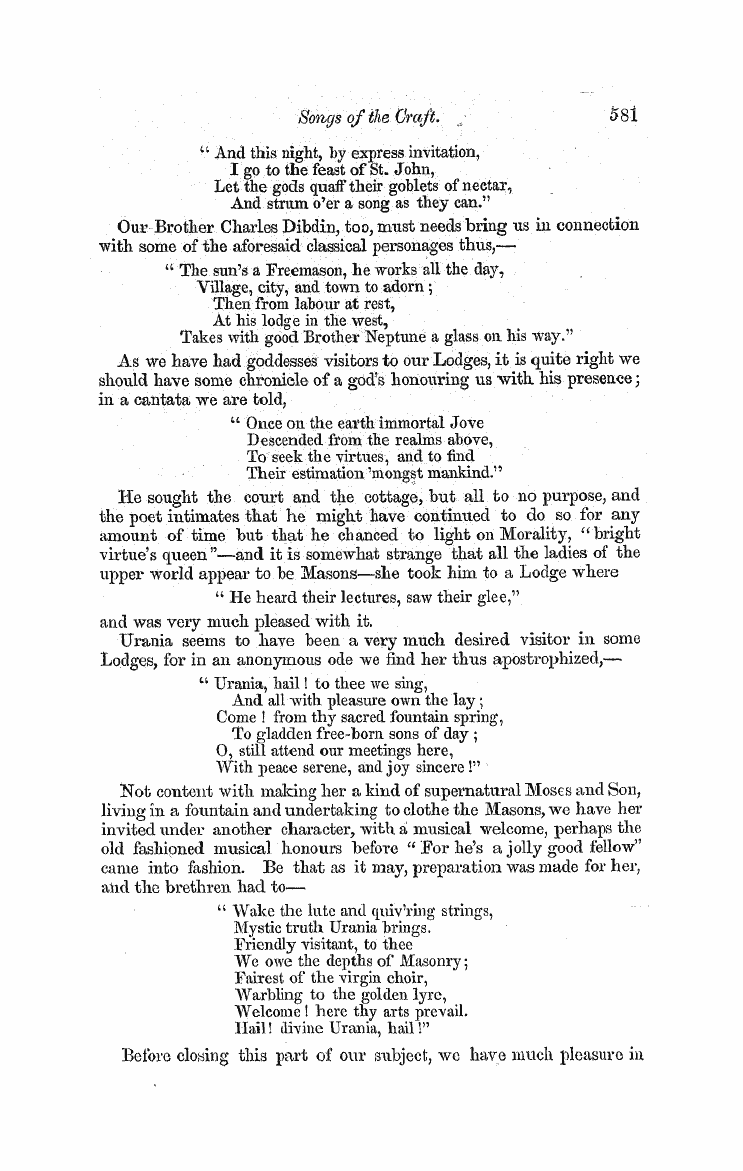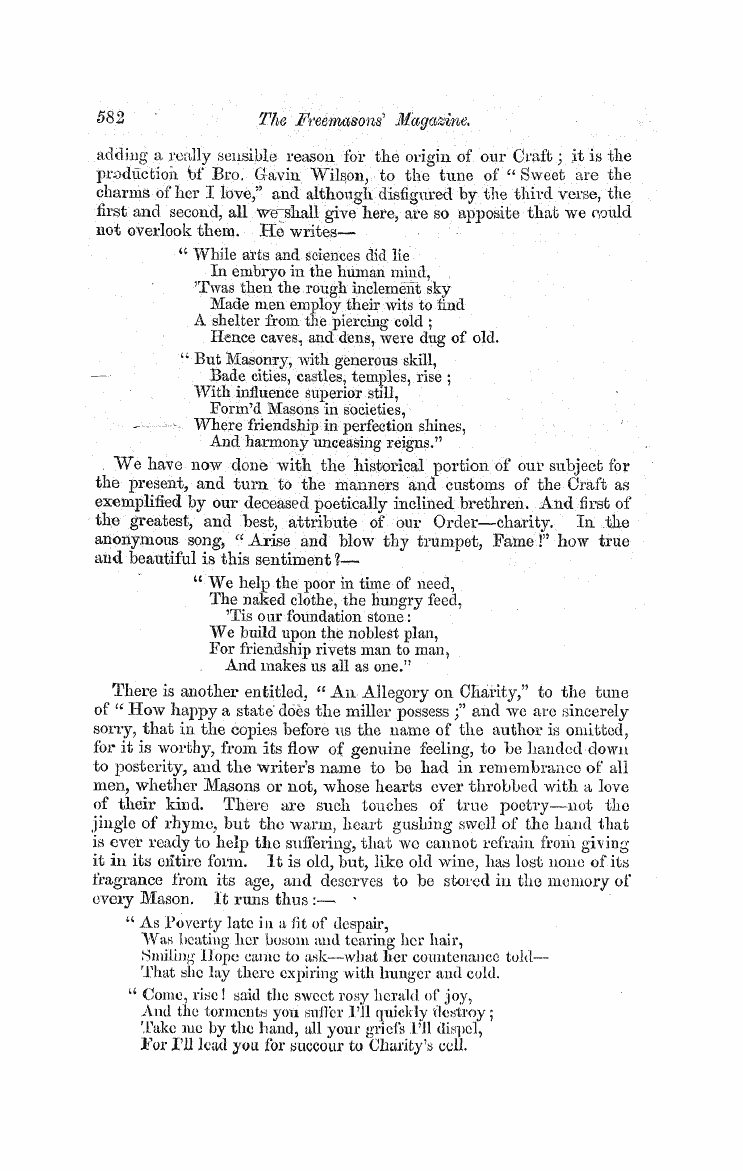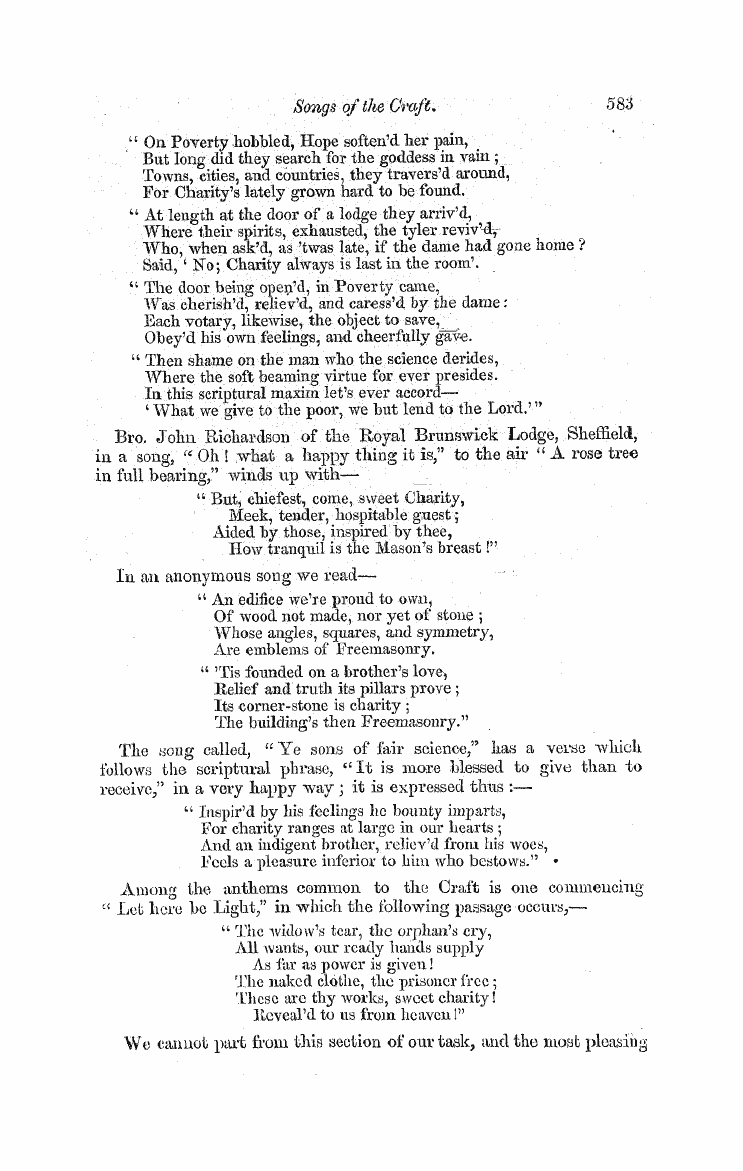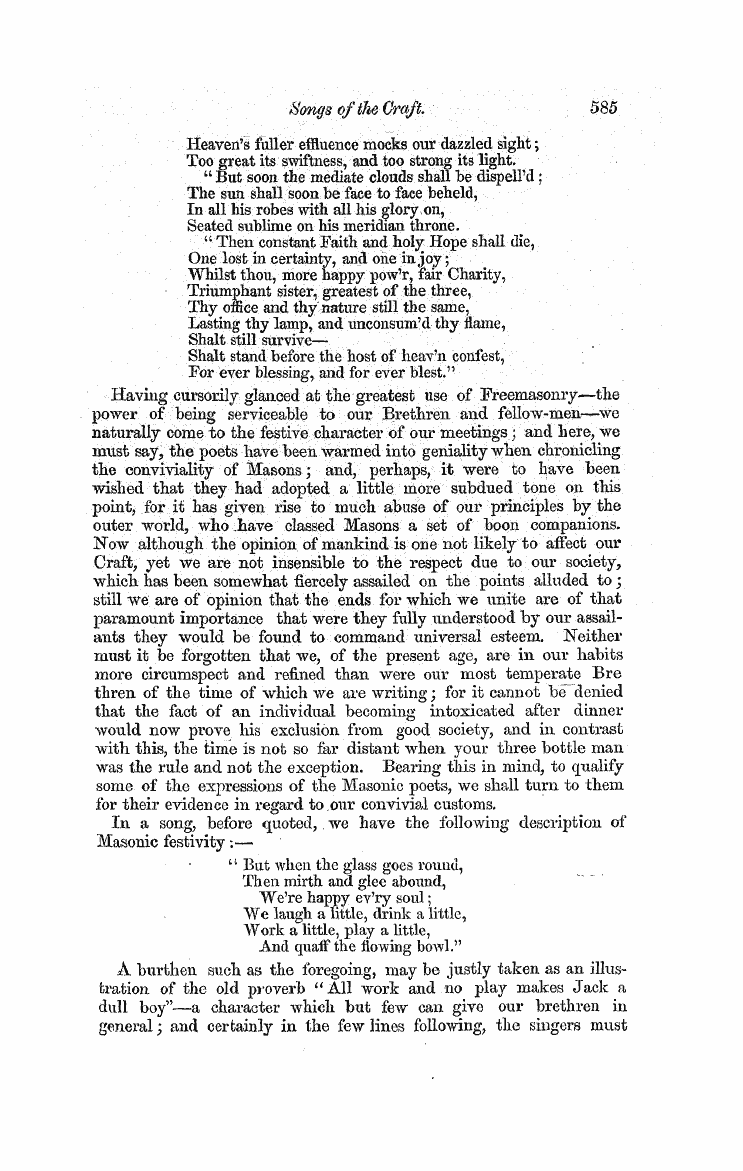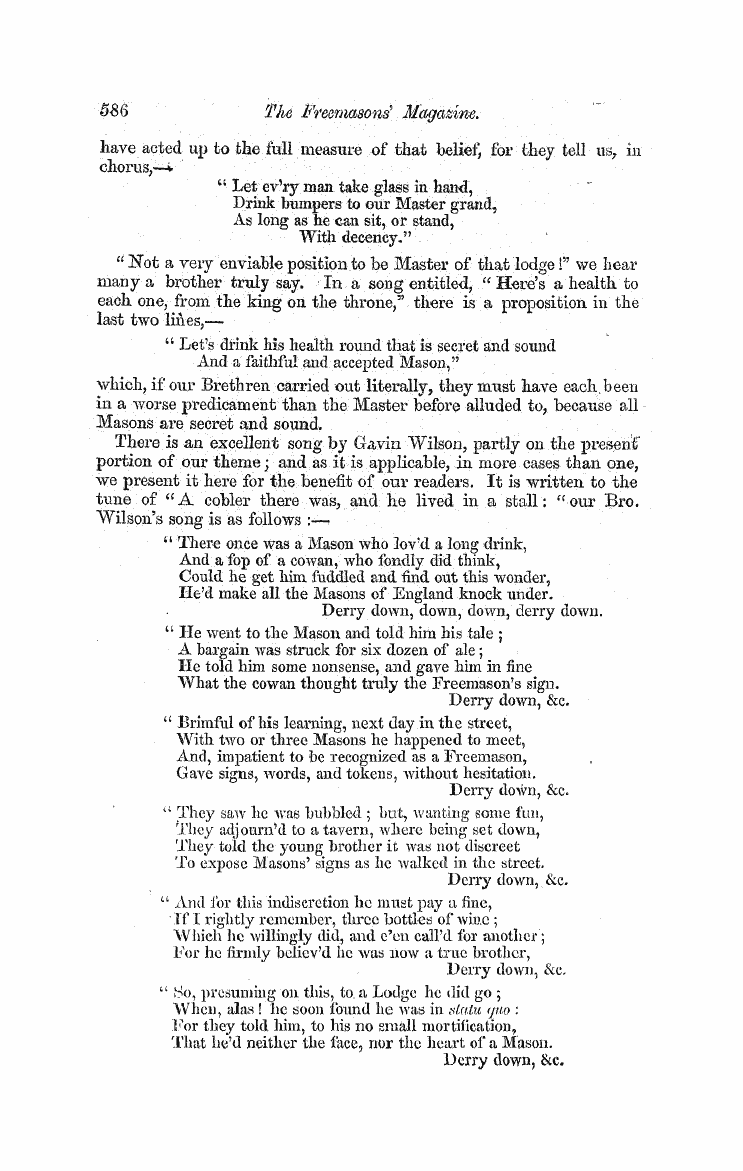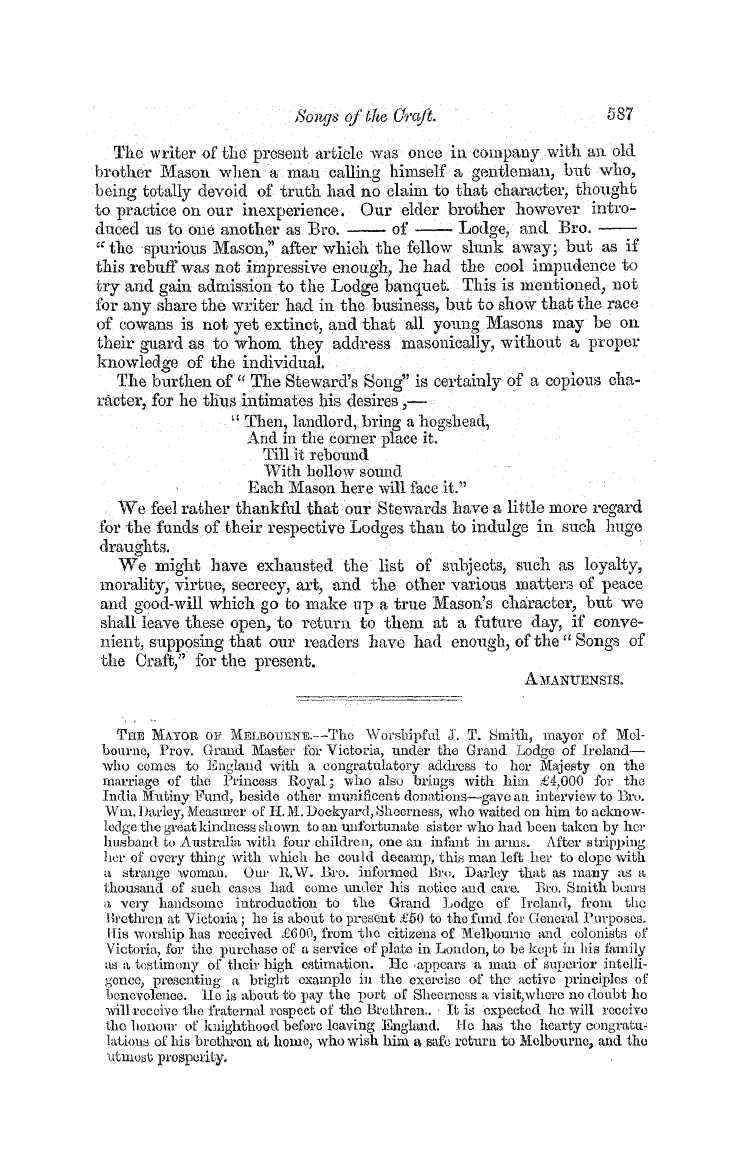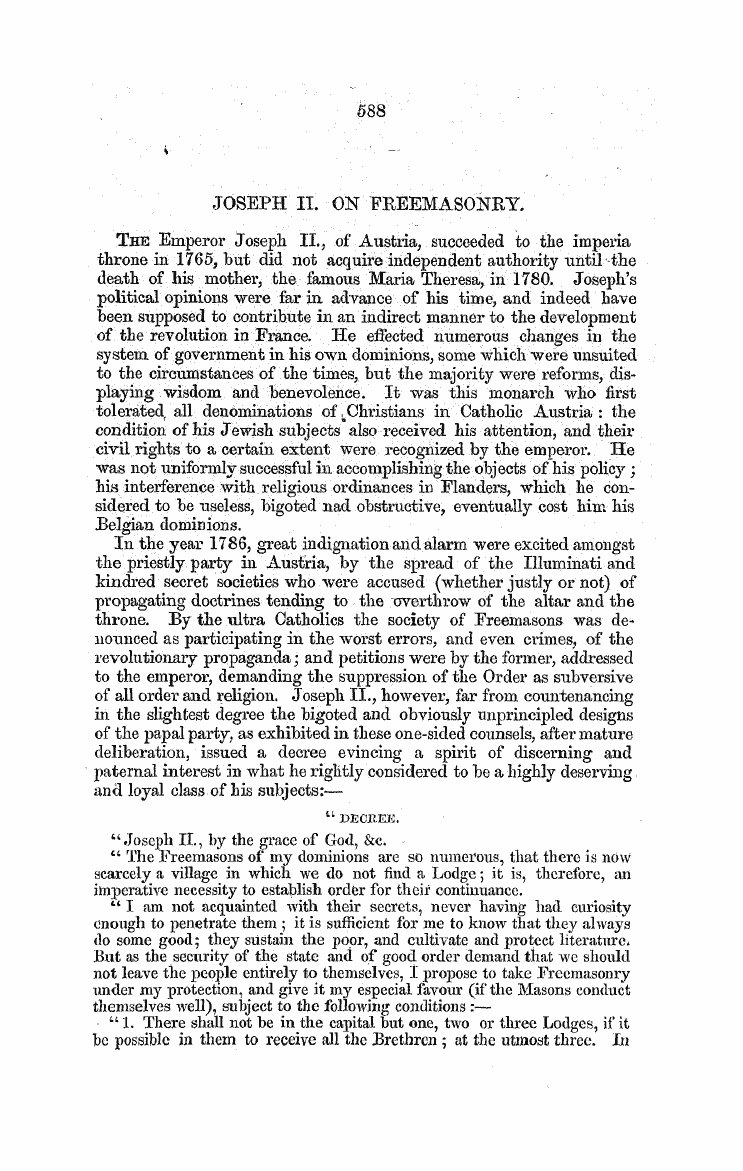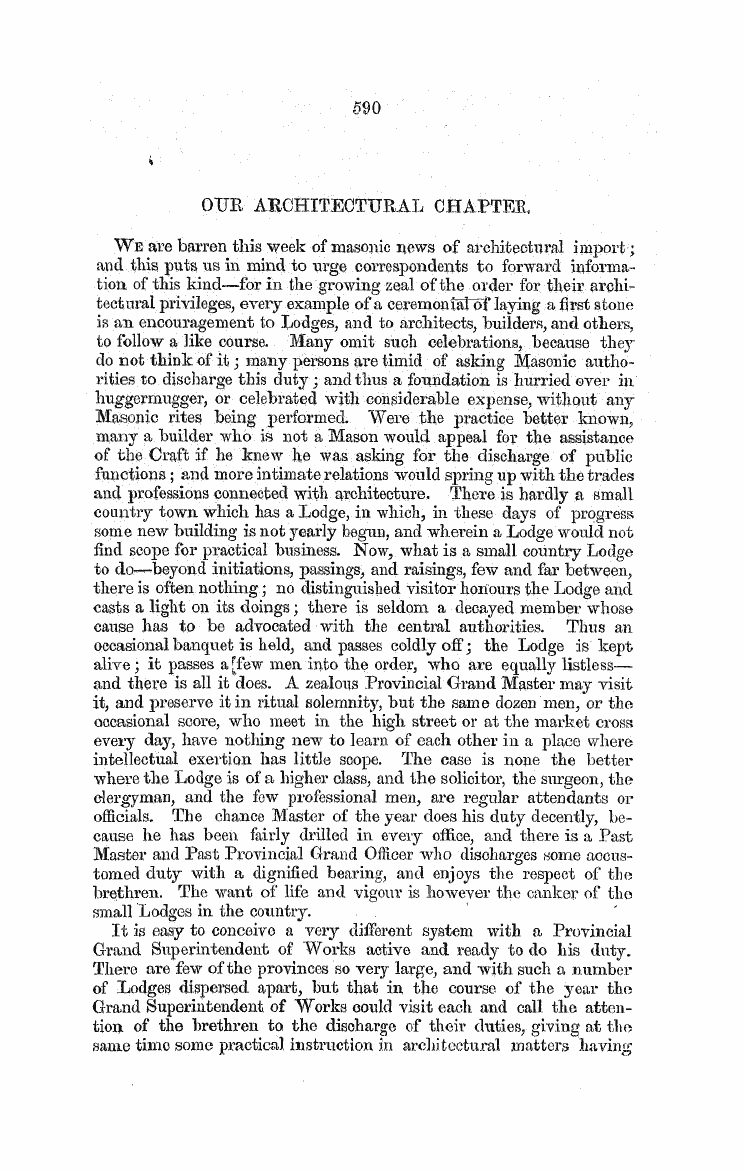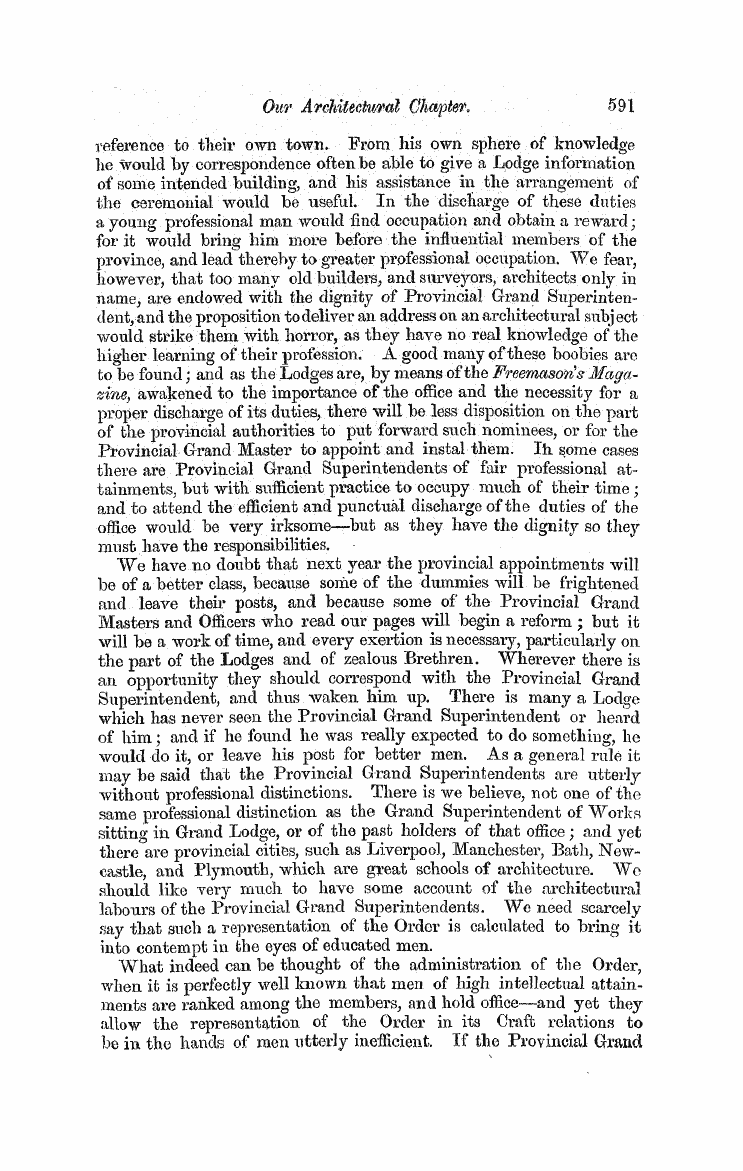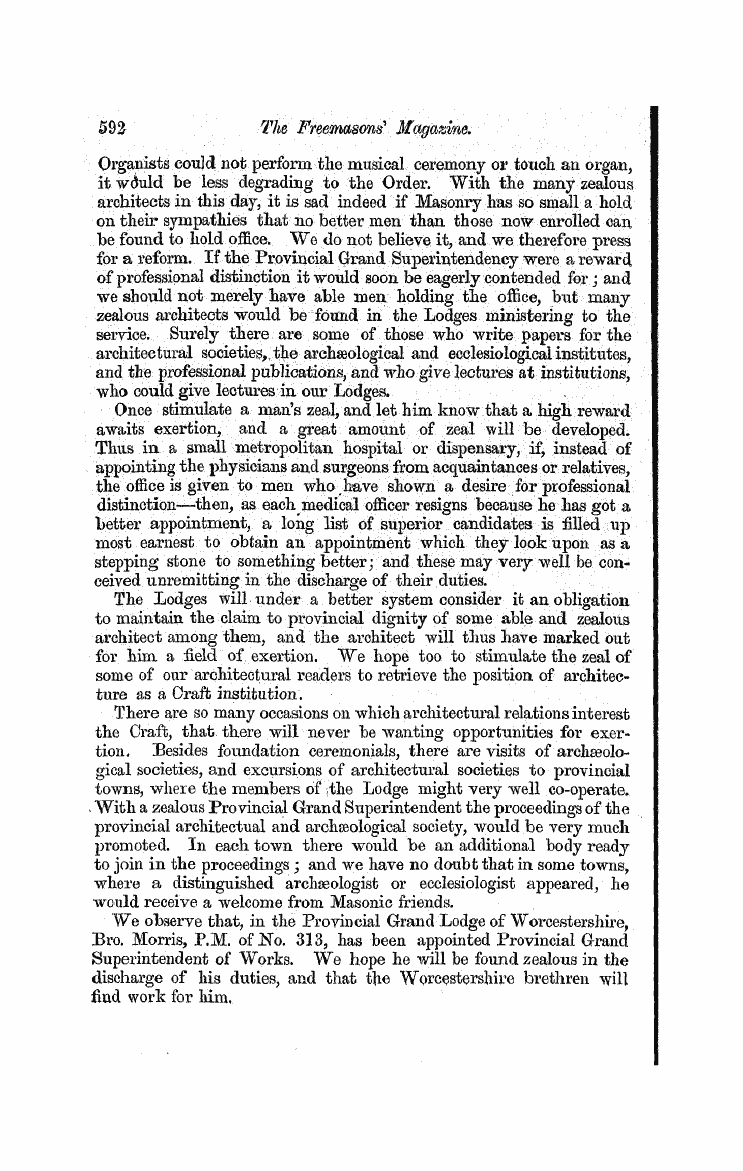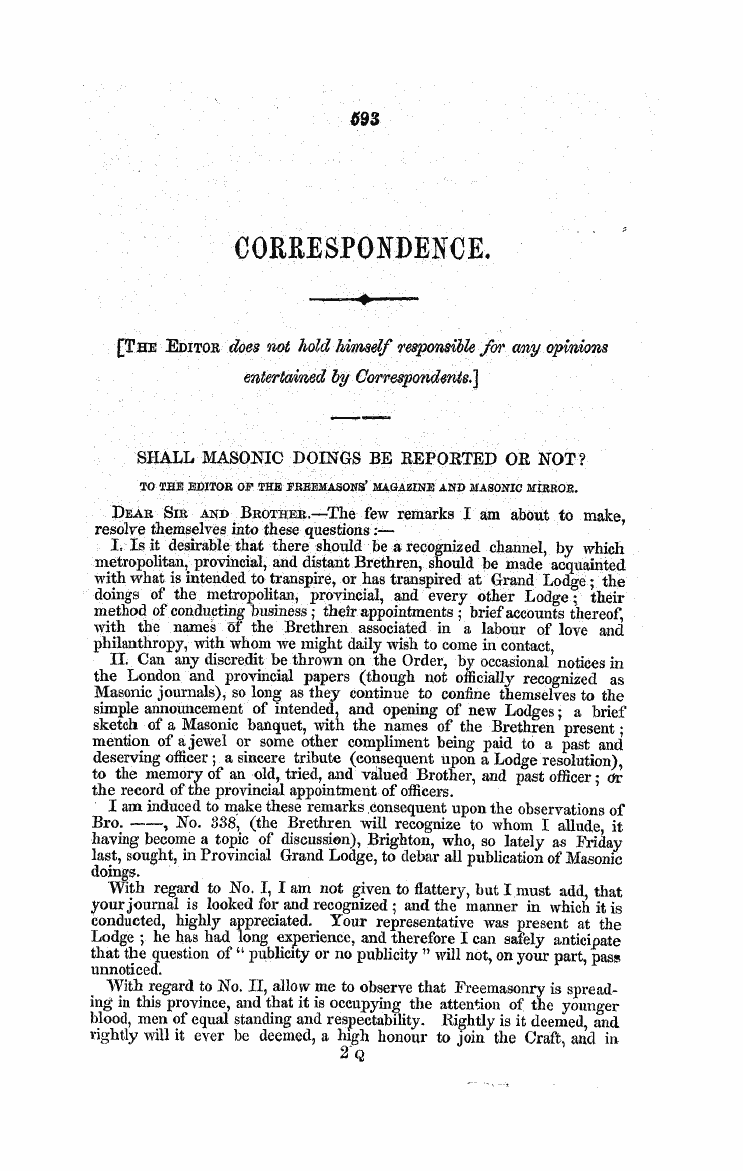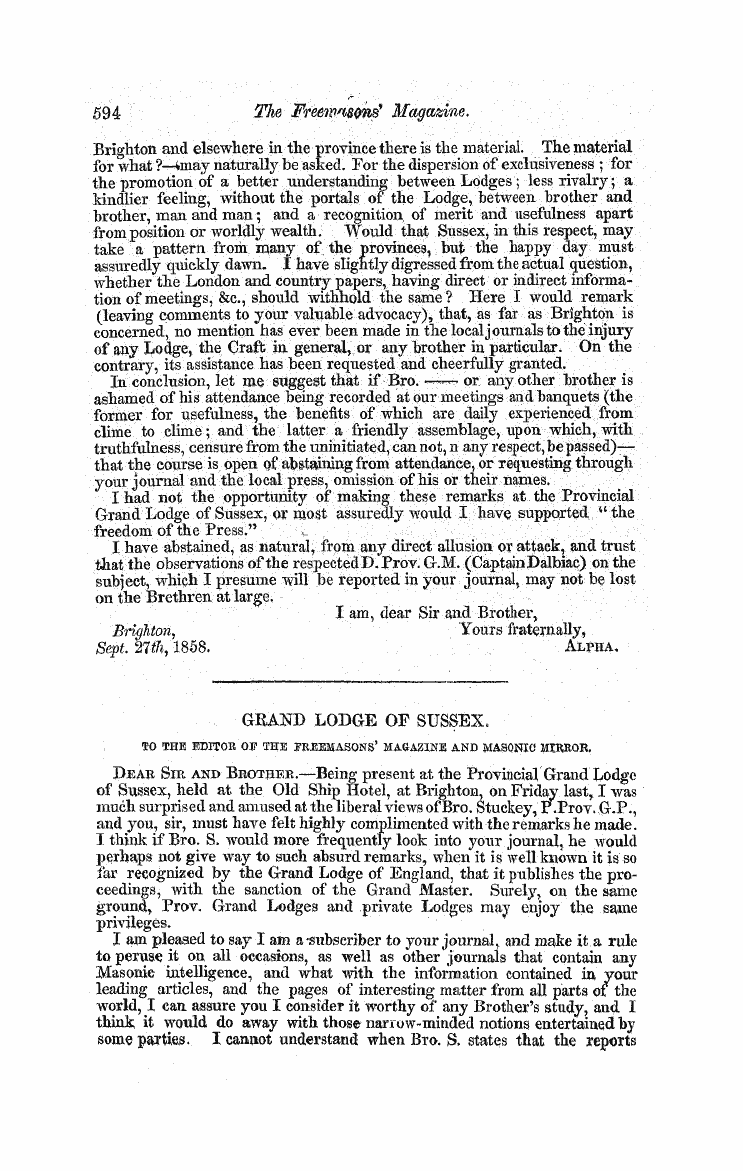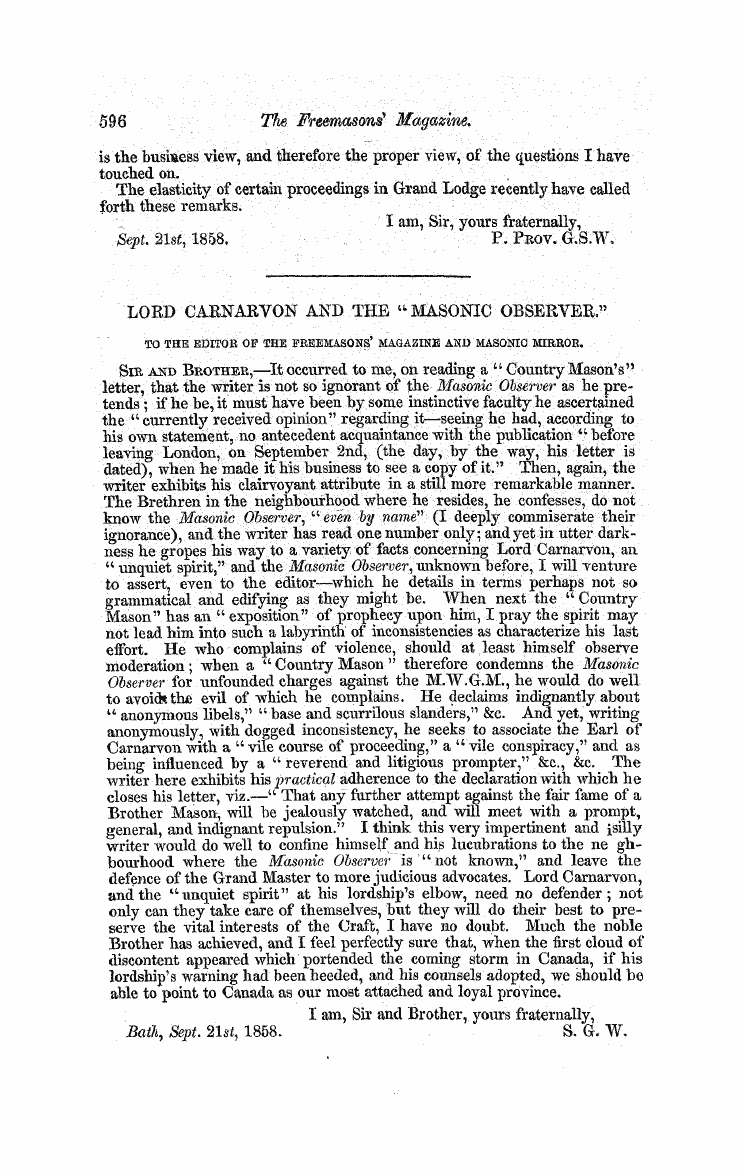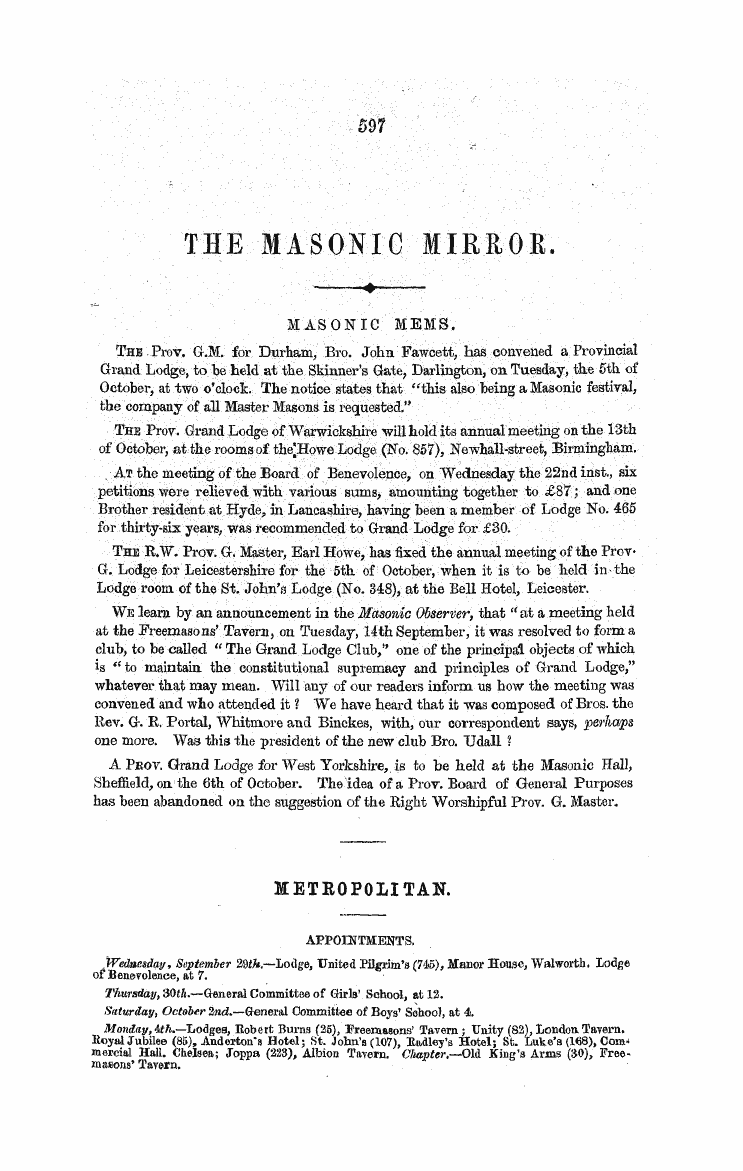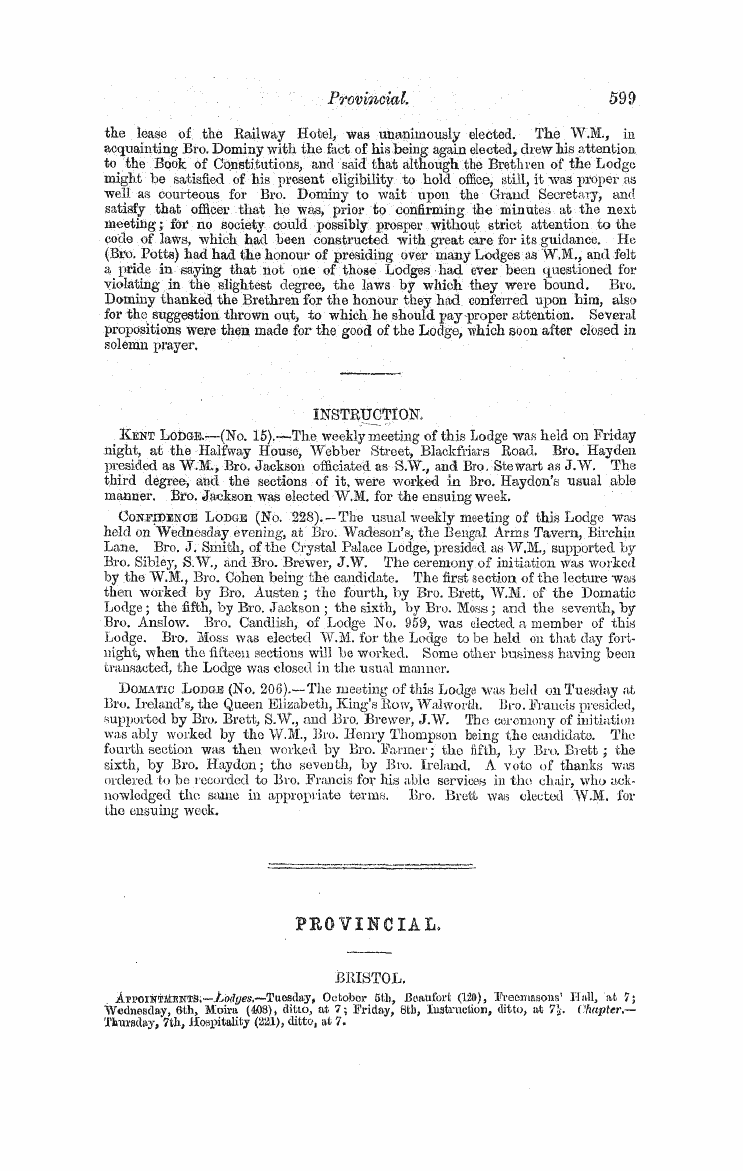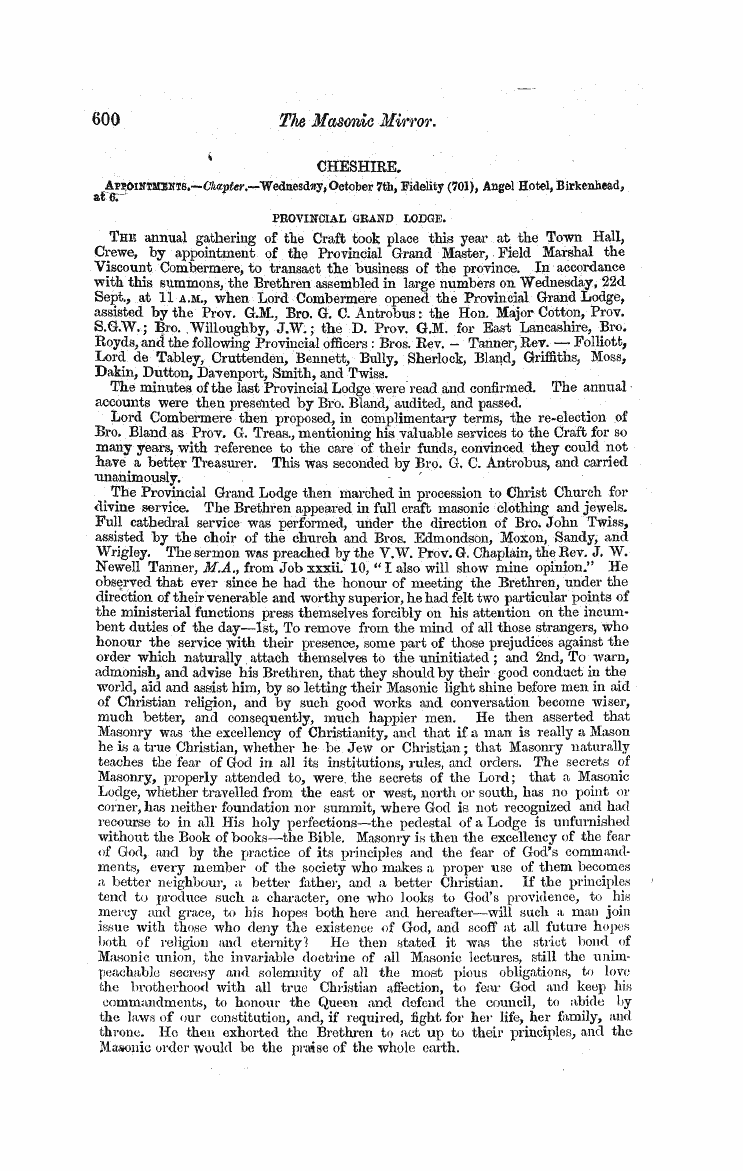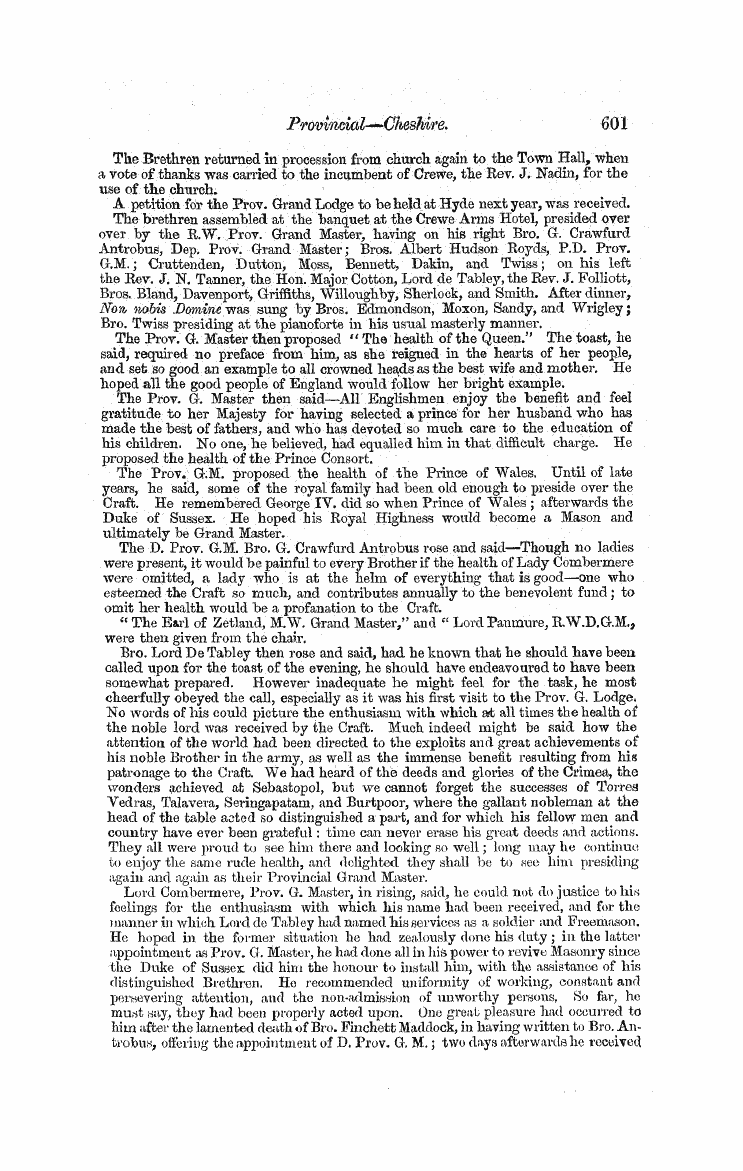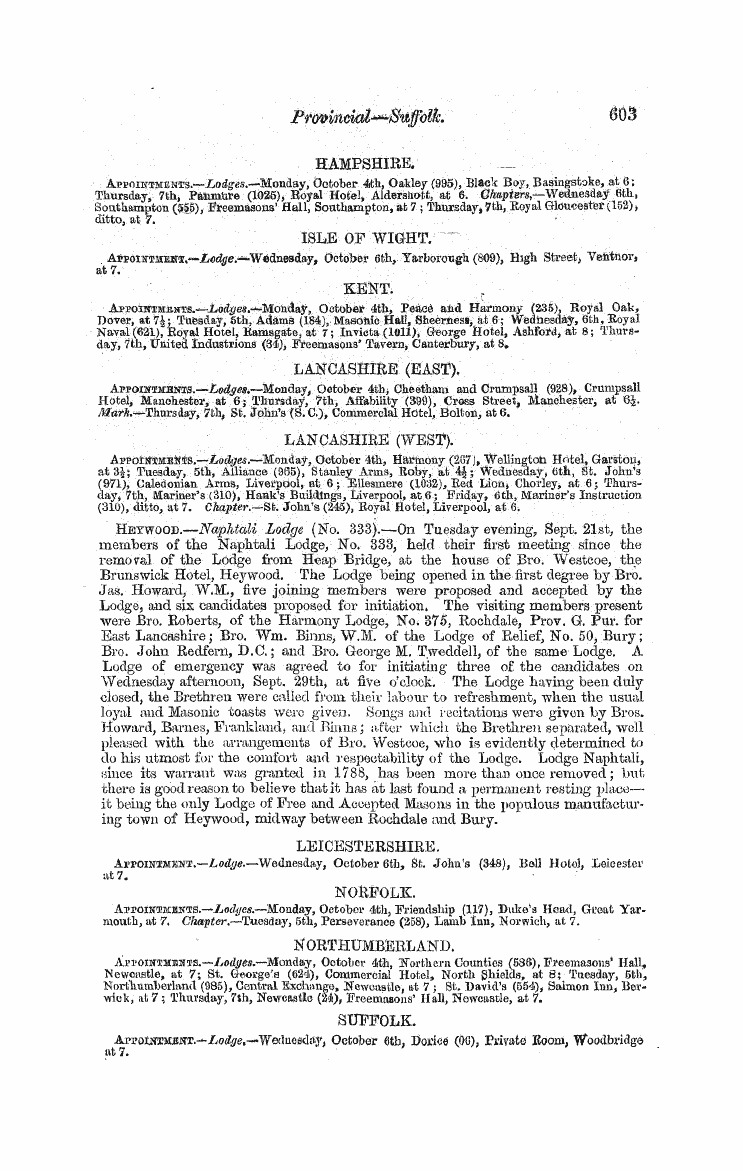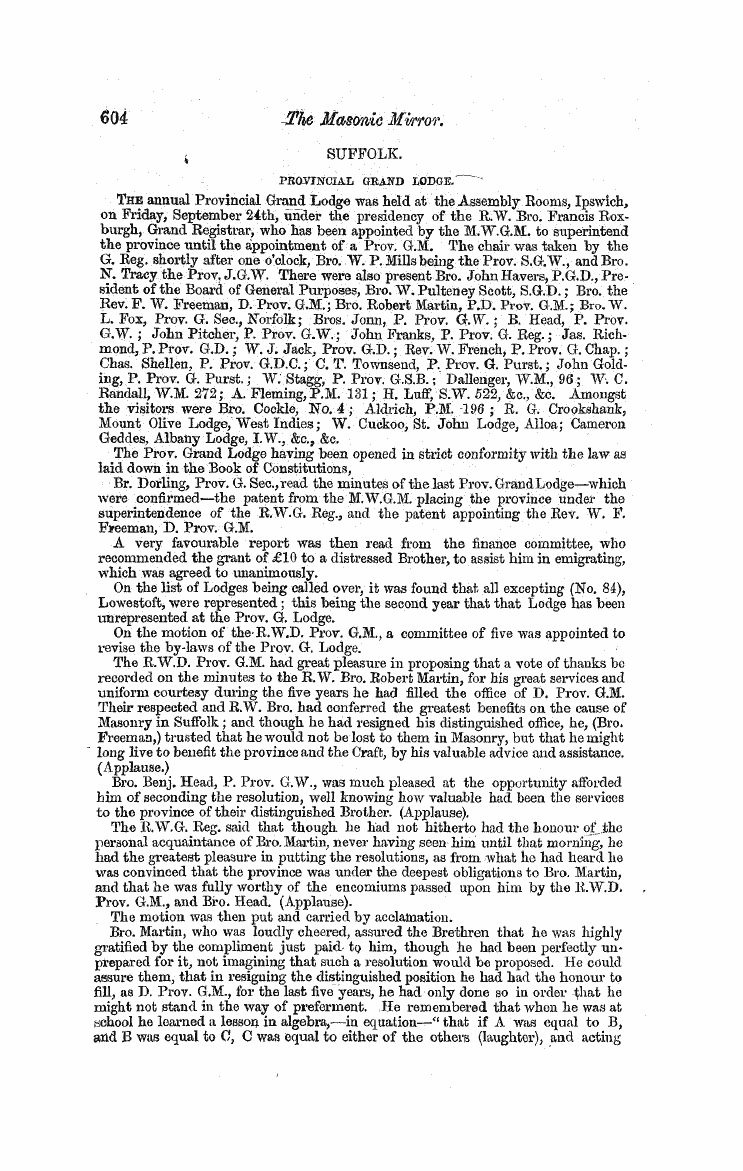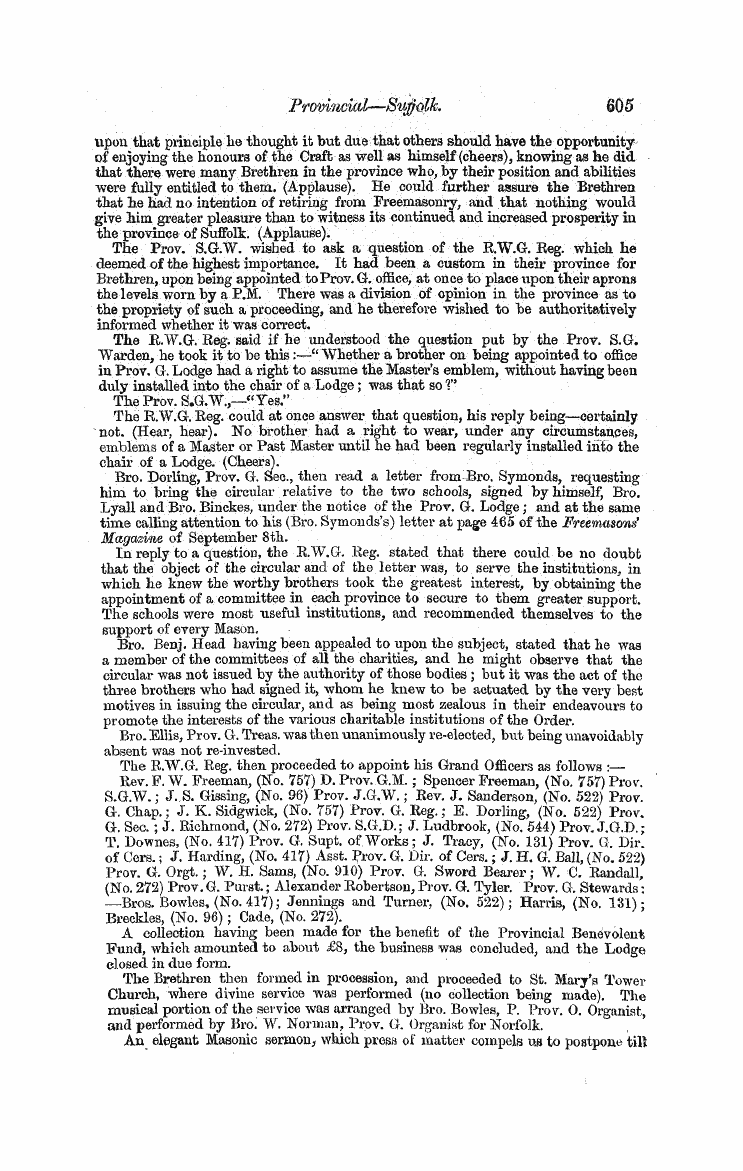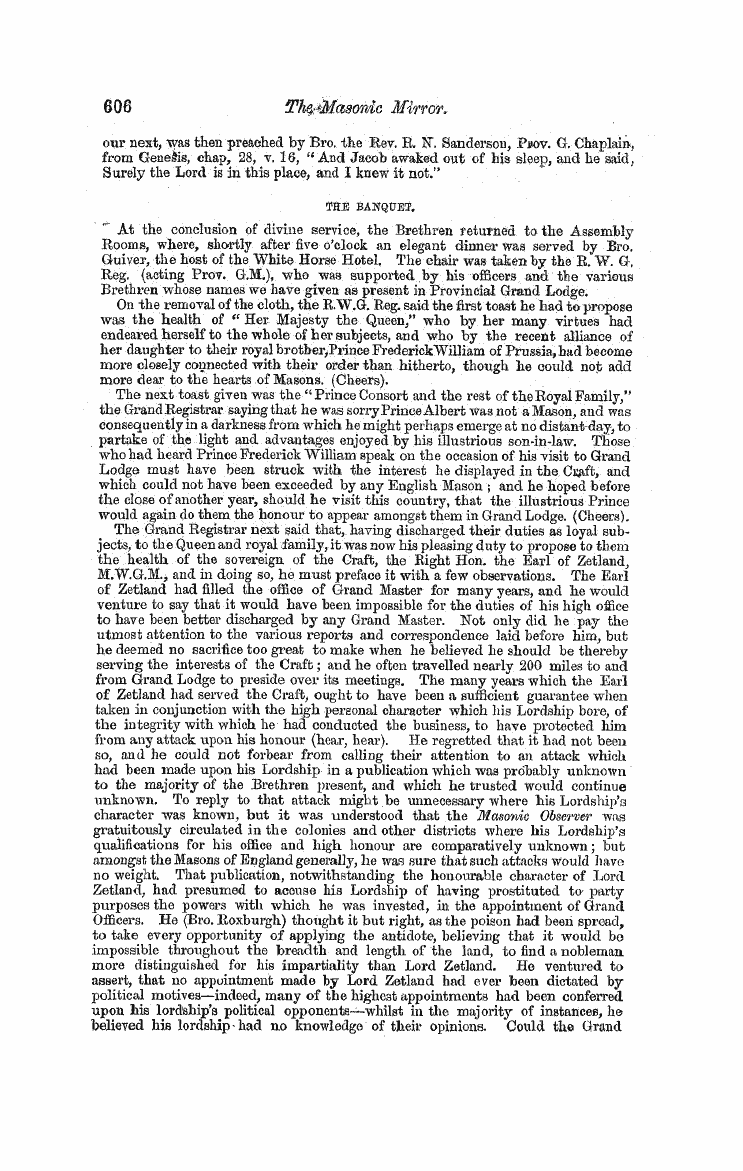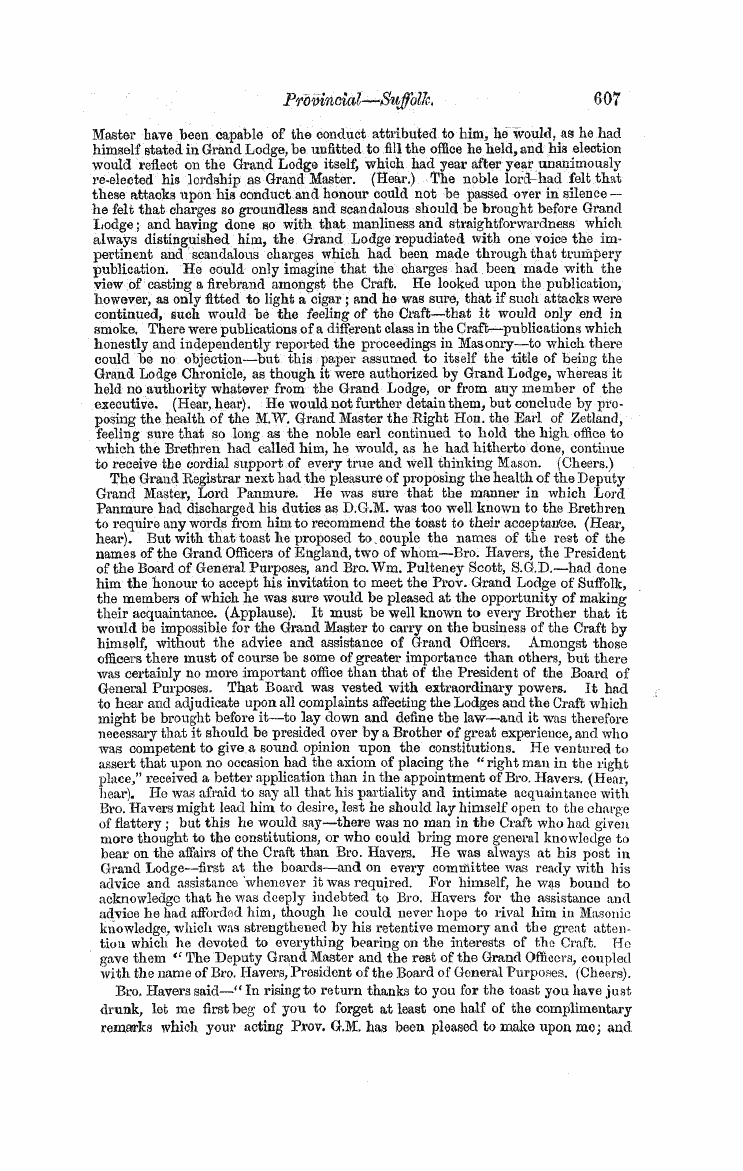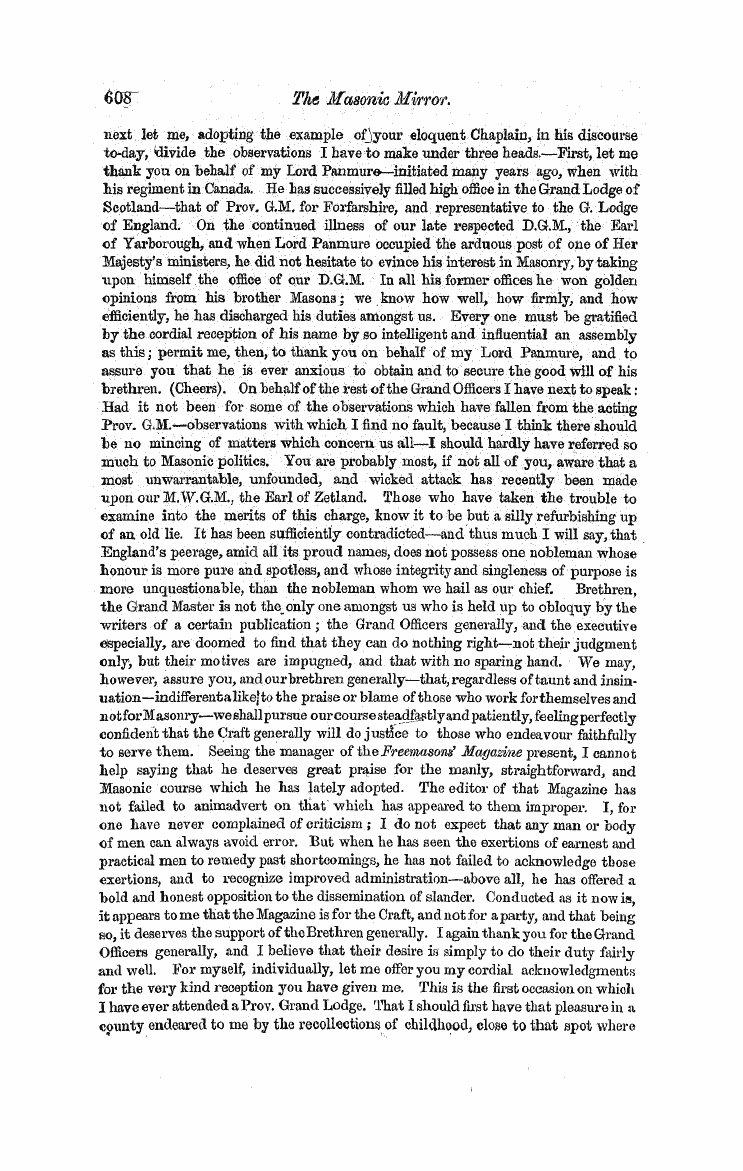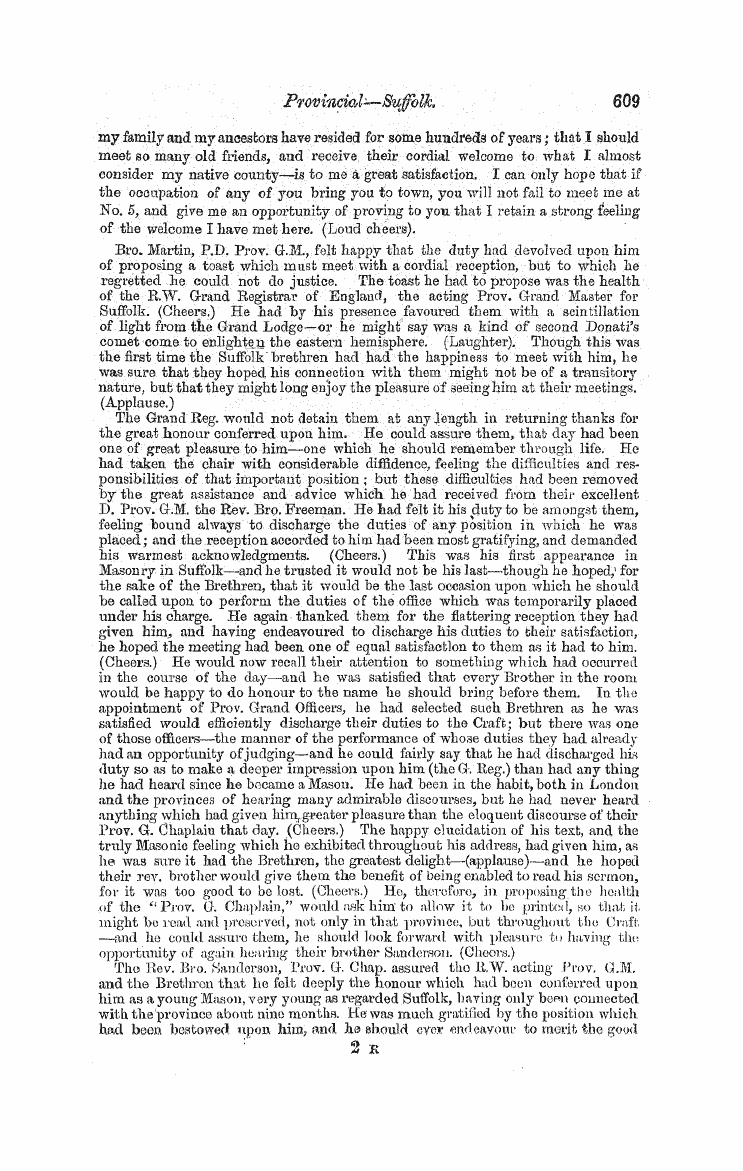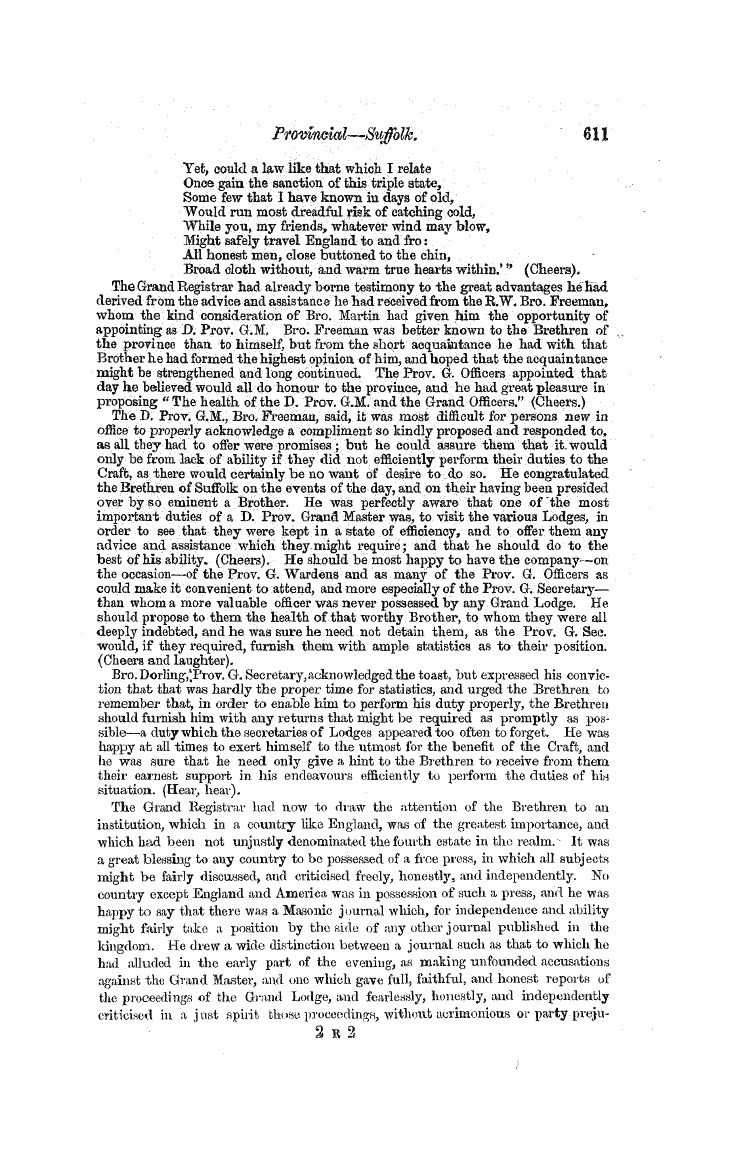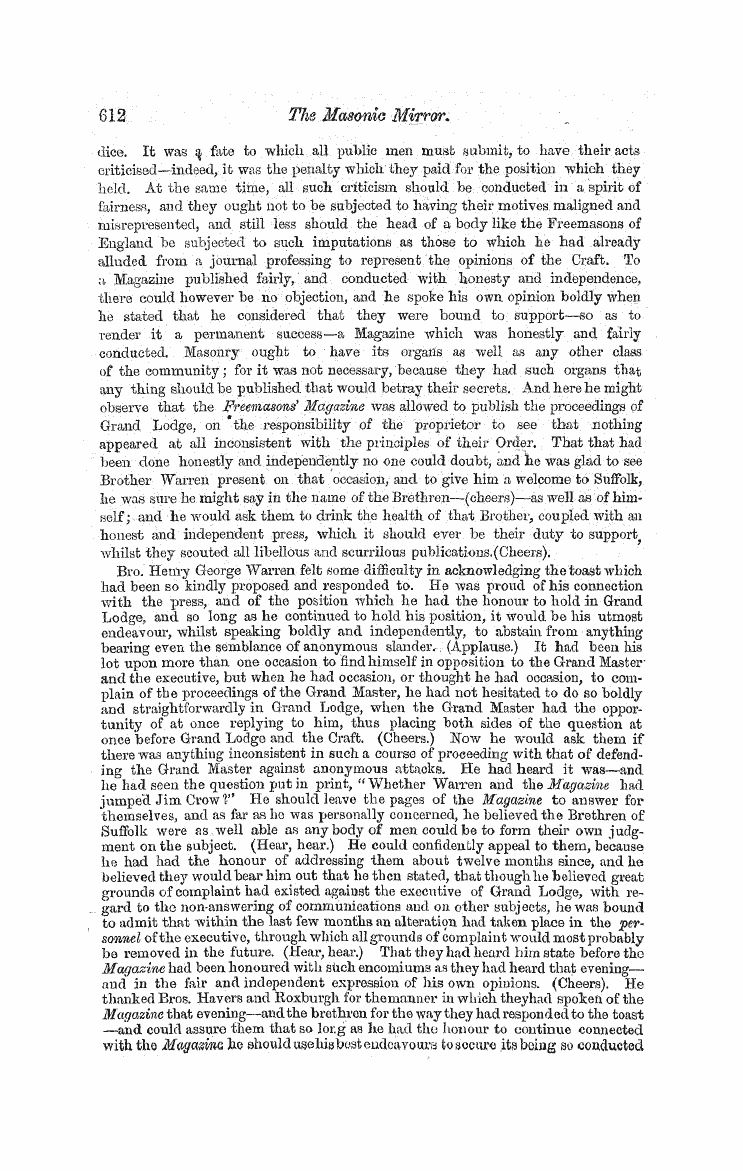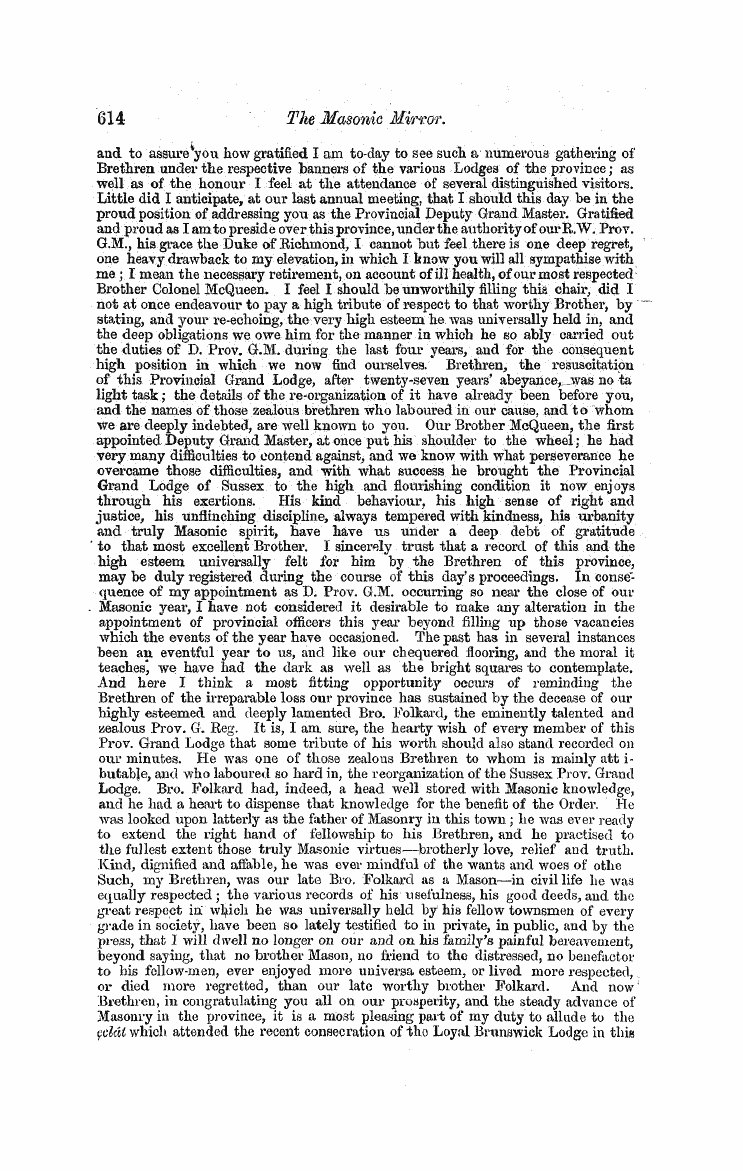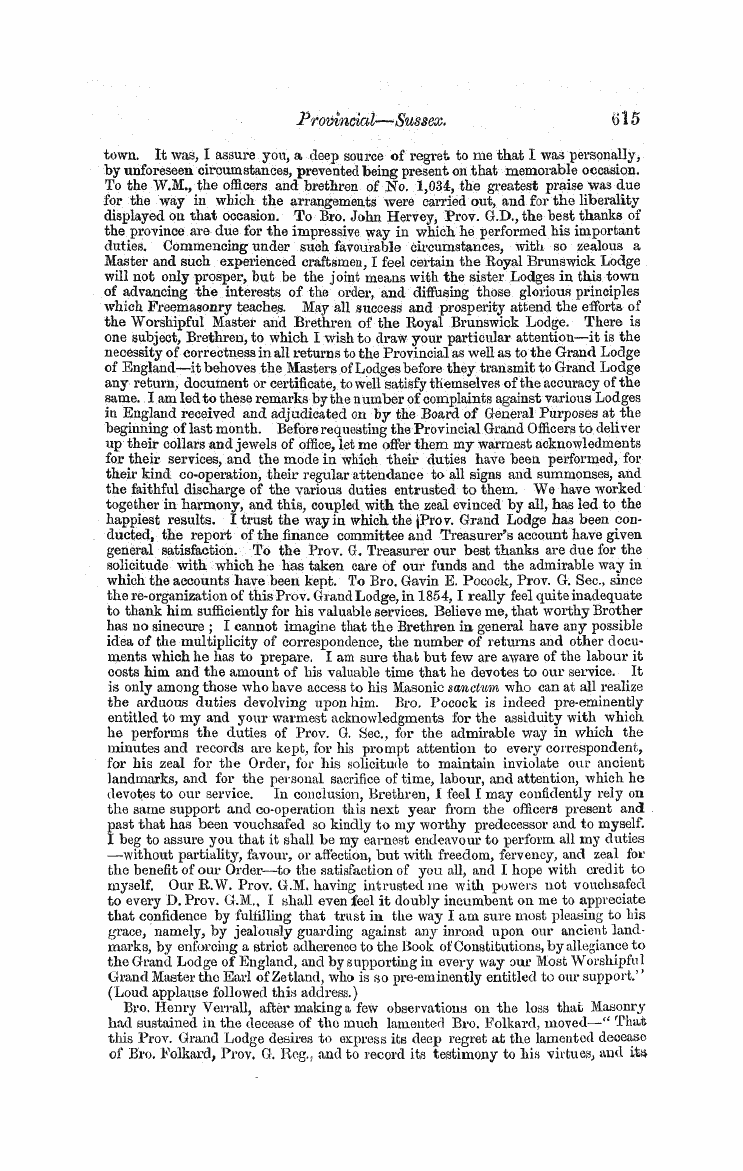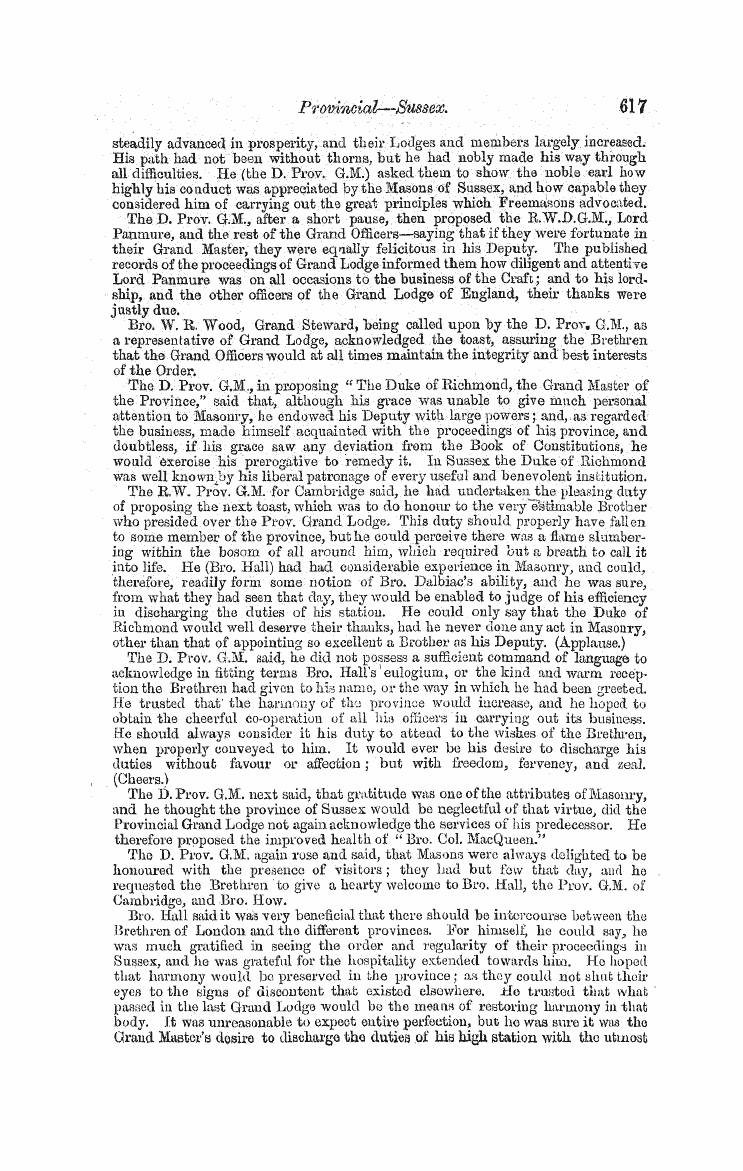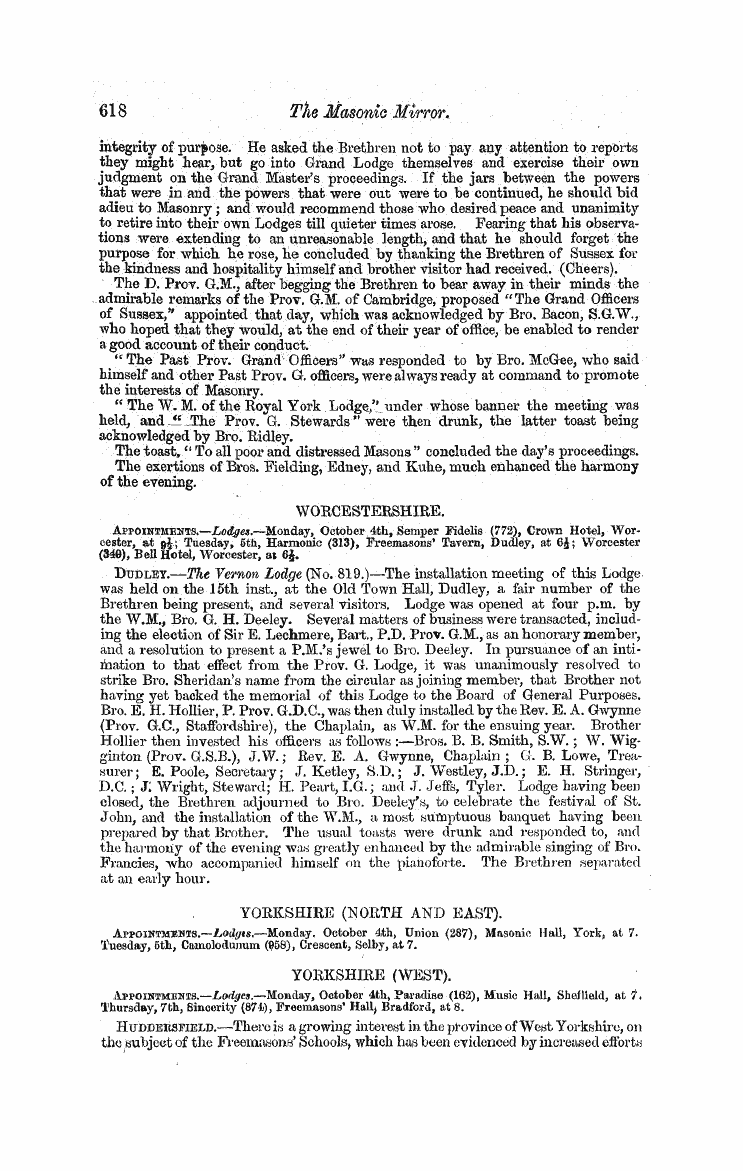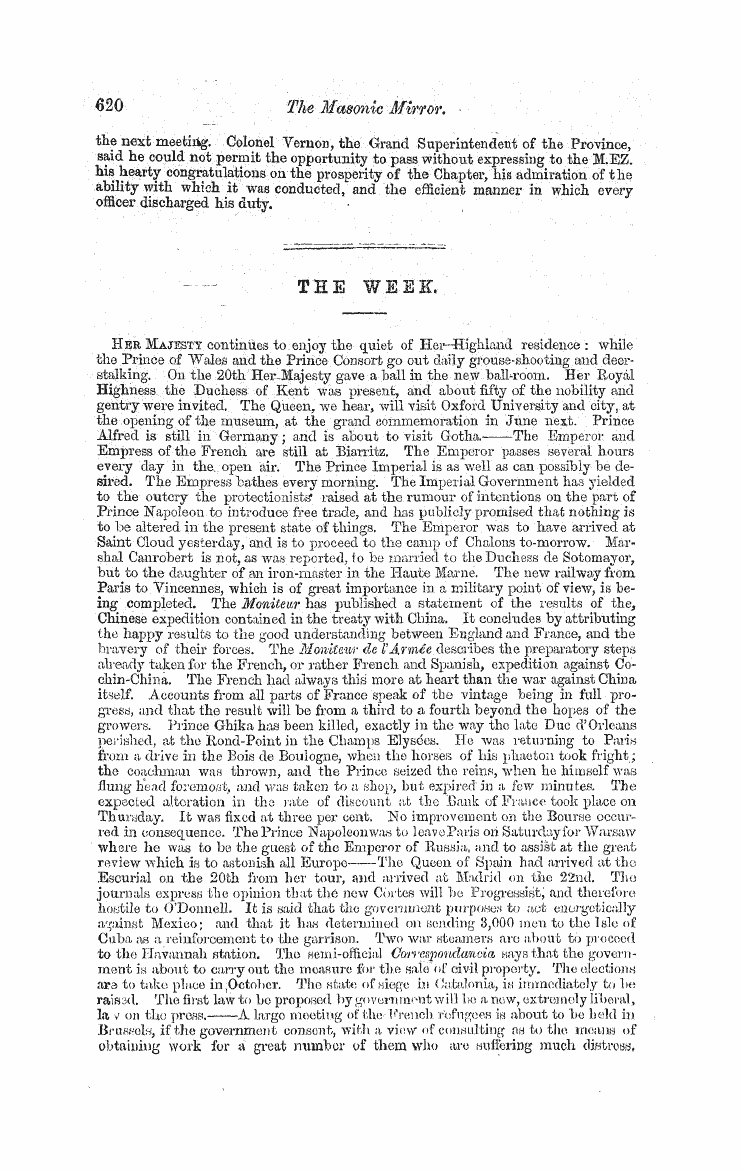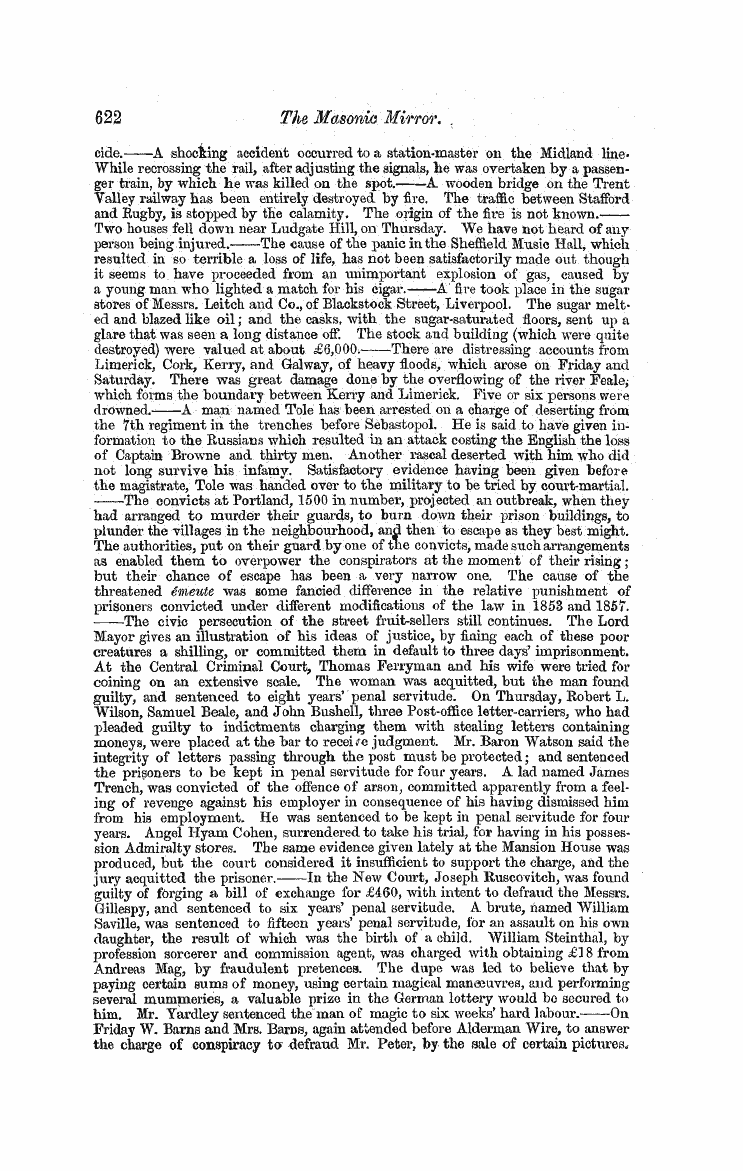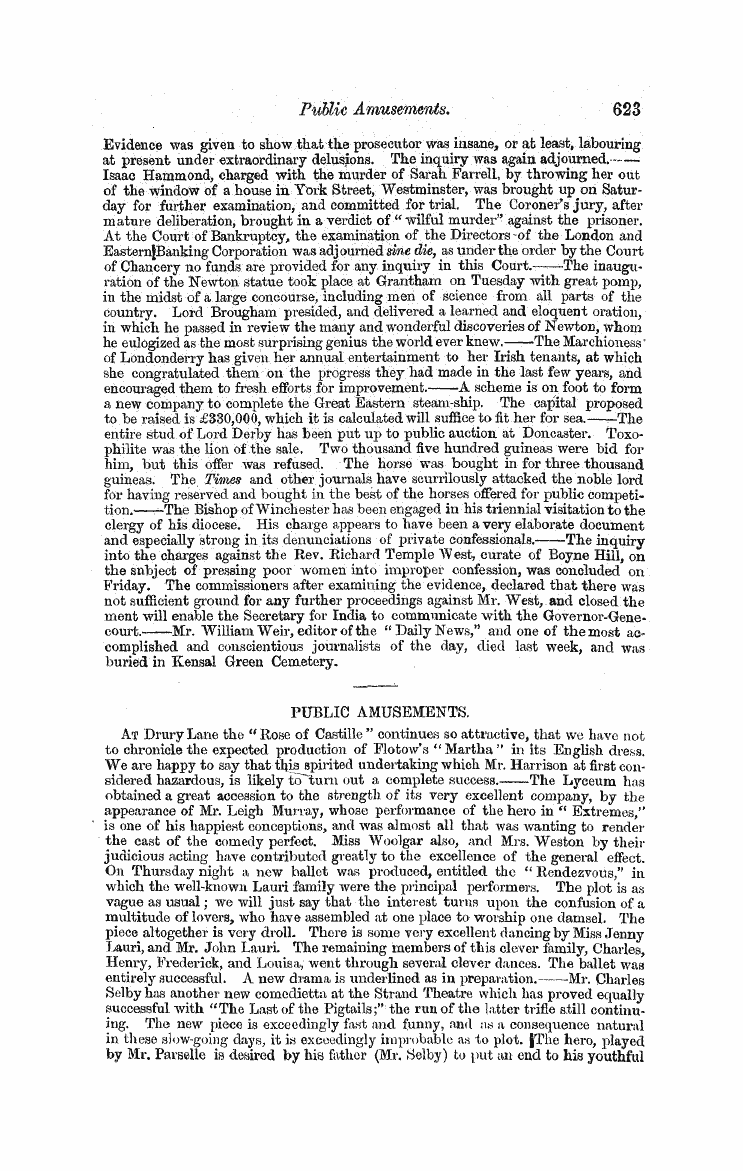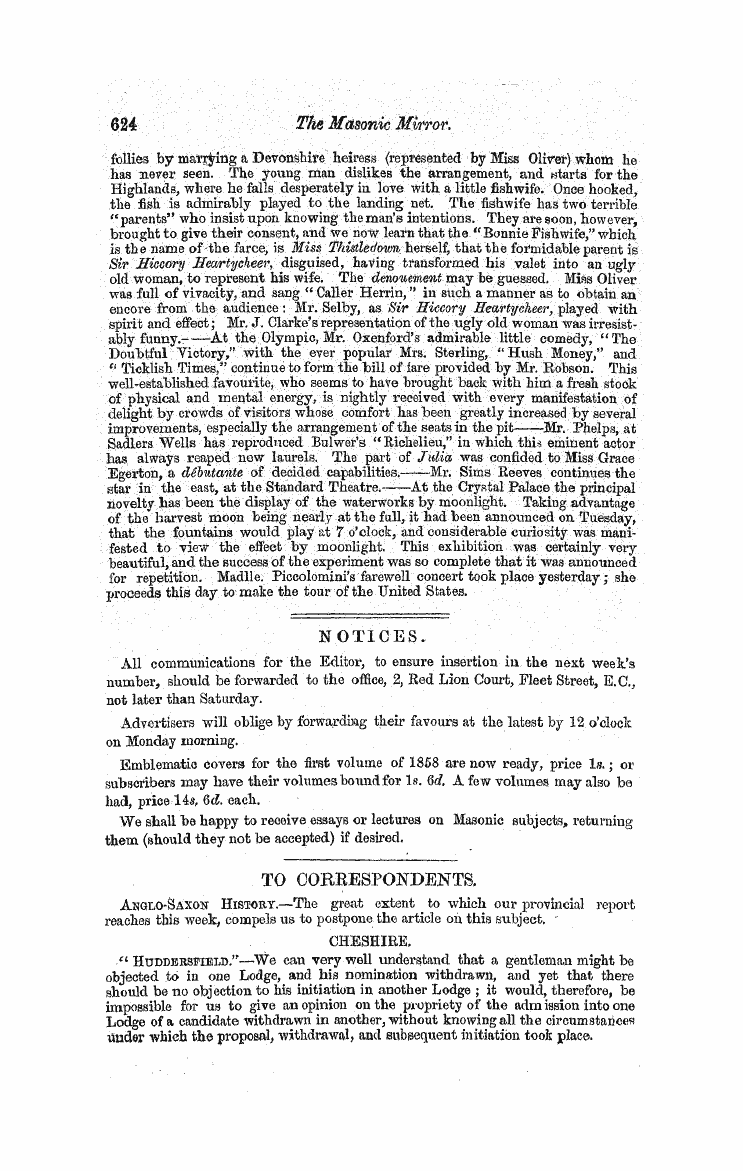Note: This text has been automatically extracted via Optical Character Recognition (OCR) software.
The Anc^
borne along the sacred road , with songs and rejoicing , from Cerameieus to Eleusis , and as many as thirty thousand persons frequently accompanied it . On this night the < myst < B remained at Eleusis , and were initiated into the last or greater mysteries , the spectacles , that is to say , and repeated the oath of secrecy .
On the seventh day the mystce returned , to Athens , or their own abodes ; the eighth and ninth clays do not appear to be appropriated ; the last , by the way , was called Plemochoce ( a kind of vessel ) , when two of these vessels were filled with water or wine , and one emptied to the east , the other to the west , while those who performed the ceremony uttered some mystical words which concluded the celebration .
Thus have we brought to-a conclusion a necessarily brief and imperfect account of the celebrated Eleusinian Mysteries ; and if its perusal interests our readers half as much as its compilation ( for a paper on such a subject must necessarily ~ -be a compilation ) has interested ourselves , we shall be amply repaid for the labour which we have bestowed upon it . -. X . '
The Great Object of EDUCATiON .--Self-iiistrLiction is the one great object of rational education , In mind as well as body we are children at first , only that we may afterwards- become men ; dependent upon , others , in order that we may learn from them such lessons as may tend eventually to our edification on an independent basis of bur own . The knowledge of facts , or what is generally called learning ;
however much we may possess of it , is useful only as we erect its materials into a mental frame-work * but useless so long as we suffer it to lie in a heap , inert and without form . The instruction is like the law compared with faith : a discipline of preparation—beggarly elements—a schoolmaster to lead us on to a state of greater worthiness and there give up the charge of us . —Bid-wer .
Economic Combustion of Fuel . —A very ingenious and valuable invention has been patented by a well-known member of the Craft , Bro . Lee Stevens ; it is called the ( C Patent Regulating Air-Door , " and is intended to improve to the utmost the combustion of fuel , with regard both to saving and efficiency . This object can only thoroughly be achieved by a continuous and duly regulated supply of oxygen , through the medium ofthe atmospheric laid ; and the end , as far as our knowledge of the subject will enable us to judge , has been successfLilly attained by this
invention , at least in its application to marine steam-boilers , and locomotive and other furnaces . Our space will not permit a detailed account ofthe apparatus , but we may enumerate a few ofthe advantages gaiaed . Those are— -adaptibility to the use of every kind of coal ; prevention of smoke ; economy of fuel , or increase of steam ; simplicity and cheapness ; durability ; improved ventilation ; facility of adjustment ; and simplicity of action . We think that wo have said enough to show that the patentee deserves the notice and encouragement of the engineering
and ship-building interests ; and we are happy to say that his merit lias been acknowledged in high official departments—the honourable Corporation of the Trinity House having employed the apparatus on board the steam yacht Argus with the most satisfactory results . The chief engineer of that vessel reports several advantages derived from its use , particularly the diminution of liQat , improvement in ventilation , and great economy in coals . We have also inspected high testimonials iu his favour from the great steam-ship companies , and also from numerous proprietors of land-furnaces , who have derived benefit from its use ,
Note: This text has been automatically extracted via Optical Character Recognition (OCR) software.
The Anc^
borne along the sacred road , with songs and rejoicing , from Cerameieus to Eleusis , and as many as thirty thousand persons frequently accompanied it . On this night the < myst < B remained at Eleusis , and were initiated into the last or greater mysteries , the spectacles , that is to say , and repeated the oath of secrecy .
On the seventh day the mystce returned , to Athens , or their own abodes ; the eighth and ninth clays do not appear to be appropriated ; the last , by the way , was called Plemochoce ( a kind of vessel ) , when two of these vessels were filled with water or wine , and one emptied to the east , the other to the west , while those who performed the ceremony uttered some mystical words which concluded the celebration .
Thus have we brought to-a conclusion a necessarily brief and imperfect account of the celebrated Eleusinian Mysteries ; and if its perusal interests our readers half as much as its compilation ( for a paper on such a subject must necessarily ~ -be a compilation ) has interested ourselves , we shall be amply repaid for the labour which we have bestowed upon it . -. X . '
The Great Object of EDUCATiON .--Self-iiistrLiction is the one great object of rational education , In mind as well as body we are children at first , only that we may afterwards- become men ; dependent upon , others , in order that we may learn from them such lessons as may tend eventually to our edification on an independent basis of bur own . The knowledge of facts , or what is generally called learning ;
however much we may possess of it , is useful only as we erect its materials into a mental frame-work * but useless so long as we suffer it to lie in a heap , inert and without form . The instruction is like the law compared with faith : a discipline of preparation—beggarly elements—a schoolmaster to lead us on to a state of greater worthiness and there give up the charge of us . —Bid-wer .
Economic Combustion of Fuel . —A very ingenious and valuable invention has been patented by a well-known member of the Craft , Bro . Lee Stevens ; it is called the ( C Patent Regulating Air-Door , " and is intended to improve to the utmost the combustion of fuel , with regard both to saving and efficiency . This object can only thoroughly be achieved by a continuous and duly regulated supply of oxygen , through the medium ofthe atmospheric laid ; and the end , as far as our knowledge of the subject will enable us to judge , has been successfLilly attained by this
invention , at least in its application to marine steam-boilers , and locomotive and other furnaces . Our space will not permit a detailed account ofthe apparatus , but we may enumerate a few ofthe advantages gaiaed . Those are— -adaptibility to the use of every kind of coal ; prevention of smoke ; economy of fuel , or increase of steam ; simplicity and cheapness ; durability ; improved ventilation ; facility of adjustment ; and simplicity of action . We think that wo have said enough to show that the patentee deserves the notice and encouragement of the engineering
and ship-building interests ; and we are happy to say that his merit lias been acknowledged in high official departments—the honourable Corporation of the Trinity House having employed the apparatus on board the steam yacht Argus with the most satisfactory results . The chief engineer of that vessel reports several advantages derived from its use , particularly the diminution of liQat , improvement in ventilation , and great economy in coals . We have also inspected high testimonials iu his favour from the great steam-ship companies , and also from numerous proprietors of land-furnaces , who have derived benefit from its use ,































































































































































































